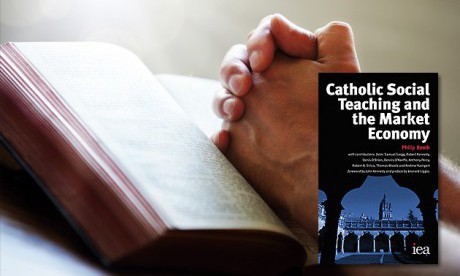The financial crisis and its aftermath have revealed the dark side of the post-cold war model, but Catholic social teaching proposes correcting the way market forces work so that they serve the public interest.
It was 25 years ago this month that communism ceased to be a threat to the west and to the free market.
When sledgehammers started to dismantle the Berlin Wall in November 1989, an experiment with the command economy begun in St Petersburg more than 70 years before was in effect over, even before the Soviet Union fell apart.
The immediate cause for the collapse of communism was that Moscow could not keep pace with Washington in the arms race of the 1980s.
Higher defence spending put pressure on an ossifying Soviet economy.
Consumer goods were scarce. Living standards suffered.
But the problems went deeper.
The Soviet Union came to grief because of a lack of trust.
The economy delivered only for a small, privileged elite who had access to imported western goods.
What started with the best of intentions in 1917 ended tarnished by corruption.
The Soviet Union was eaten away from within.
As it turned out, the end of the cold war was not unbridled good news for the citizens of the west.
For a large part of the postwar era, the Soviet Union was seen as a real threat and even in the 1980s there was little inkling that it would disappear so quickly.
A powerful country with a rival ideology and a strong military acted as a restraint on the west.
The fear that workers could “go red” meant they had to be kept happy.
The proceeds of growth were shared. Welfare benefits were generous. Investment in public infrastructure was high. Continue reading
Sources
- The Guardian
- Image: ieaTV
News category: Features.




